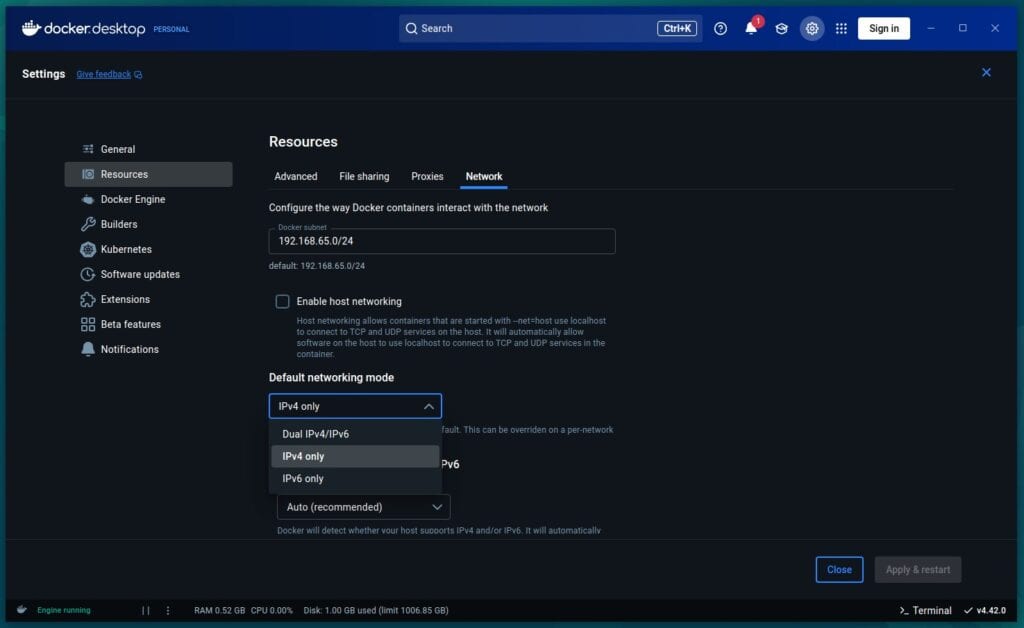Docker Desktop, the popular development platform for building, testing, and deploying containerized applications across different environments, has introduced its latest update, Docker Desktop 4.42, with some big changes.
One of the new version’s standout features is its native IPv6 networking capability. Developers now have the option to select from dual IPv4/IPv6 (default), IPv4-only, or IPv6-only networking modes, allowing Docker to better align with varied organizational network requirements.
Additionally, the update includes intelligent DNS resolution that detects the host’s network stack and filters unsupported DNS record types. This reduces connectivity issues common in environments constrained to either IPv4 or IPv6.
These settings, accessible under Docker Desktop “Settings” > “Resources” > “Network,” can be centrally managed and enforced across teams, enhancing reliability in sophisticated network configurations, including IPv6-only deployments.

Moreover, the Docker MCP Toolkit is now fully integrated into the app. Previously requiring separate installation or execution through external processes, MCP servers—including popular ones like GitHub, MongoDB, and HashiCorp—are now available directly within Docker Desktop.
Users can enable and configure these servers and connect them to compatible clients and agentic applications such as Claude Desktop, Cursor, Continue.dev, or Docker’s own AI agent Gordon. In addition, MCP functionality extends to the command line with new docker mcp commands, allowing developers to manage MCP servers, clients, configurations, and secrets seamlessly from the terminal.
The Docker Model Runner component also sees noteworthy upgrades. Beyond supporting Apple Silicon and Windows devices with NVIDIA GPUs, it now extends to Windows systems powered by Qualcomm chipsets. The underlying inference engine is updated to the latest version of llama.cpp, enhancing AI tool-calling capabilities.
Model Runner can now be installed directly in Docker Engine Community Edition across multiple Linux distributions, facilitating AI integration within CI/CD pipelines and automated testing workflows. To assist with onboarding, Docker Desktop’s interface has been revamped with dedicated tabs for local models, Docker Hub AI catalog browsing, and real-time logging of model execution.
Last but not least, in addition to UI enhancements, Docker introduces the docker model package CLI command, enabling developers to convert models from the GGUF format into OCI-compliant artifacts. This advancement standardizes AI model distribution, supporting publishing to public and private OCI-compatible registries such as Docker Hub.
For detailed information about all changes, refer to the official announcement or check out the release notes. If you’d like to try out the app, we’ve provided detailed guides on installing it on Ubuntu, Linux Mint, Debian, and Fedora.
Docker Desktop 4.42 is available for download on various major OSes, including Windows (x86_64), Windows ARM Beta, macOS (Intel and Apple Silicon), and Linux (APT and RPM-based distributions, plus distros from the Arch ecosystem).
